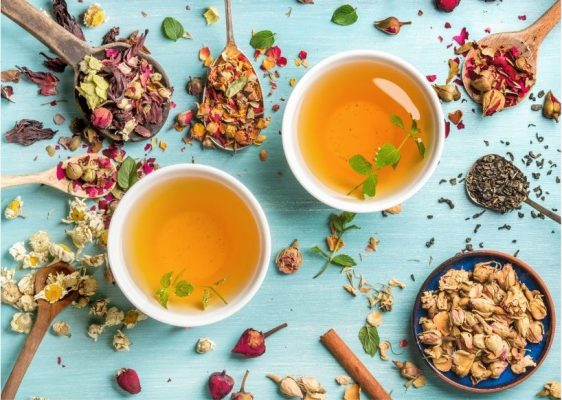Tea: Good Or Bad For Health?

Tea is known as one of the most popular drinks globally and is loved by many. The delicious brew can satisfy even the most discerning of tastes. Moreover, whether you drink it for leisure or health purposes, it’s sure to be a great option.
However, it’s essential to be mindful of some of its disadvantages. Additionally, its adverse effects may be more far-reaching than just your health. There are now issues about forests cleared for tea farms and pesticides in tea bags which are garnering attention in the news. While it’ll always be known for its health benefits, knowing its possible side effects will help you make informed decisions.
To have a better idea of the positive and negative ways tea can affect your life, here is a list of its good and bad effects:
The Good
-
Health Benefits
Humanity has used tea to address different ailments for hundreds of years. While it may seem common knowledge now, this fact bears repeating. Additionally, researchers continue their studies to truly understand the health benefits of tea. Some of its most promising benefits are as follows:
- May aid in weight loss
- It May help in preventing certain types of cancers
- May reduce risk of strokes and heart attacks
- May boost mood and confidence
Researchers attribute their findings to a couple of reasons. First, antioxidants protect your body from free radicals. Uncontrolled levels of free radicals can result in cancer and heart disease. As such, tea acts as an excellent solution to control these compounds.
Moreover, tea remains very low in calories while possessing a healthy amount of caffeine. Aside from gaining heightened focus, this combination also augments efforts towards weight loss. It’s easy to see how all this can translate into gaining enough confidence and boost into a positive mood.
-
Lesser Amount Of Caffeine
Some people may find themselves more sensitive to caffeine than others. Ultimately, finding a substitute for coffee becomes complicated. And yet, tea contains a lesser amount of caffeine when compared to coffee. Black teas and even green teas are especially famous for this. As such, this offers them the best of both worlds. Tea gives access to the benefits of caffeine without needing to take too much of it
-
Comes In Different Flavors
The flavors of a beverage can’t be understated. While many other drinks offer benefits, nothing comes close to the flexibility of tea. Tea is delicious whether served hot or cold. Moreover, it comes in many flavors.
Those with a sweet tooth can enjoy herbal infusions and green teas. Conversely, those looking for more punch have black teas at their disposal. Additionally, there are a lot of ways when it comes to customizing your tea. Milk, sugar, and honey are traditional additions. Although, add-ons like syrups and sinkers are making headlines in the tea industry. The ideas are endless when it comes to tea preferences, everyday new concepts are introduced.

The Not So Good
-
May Cause Reduced Iron Absorption
Although tea is rich in beneficial compounds, it may bring some harmful ones as well. An excess of these can affect your health negatively. The compound you need to watch for will be tannins. These are known to bind iron to certain kinds of foods, making them difficult for your digestive tract to absorb.
As a result, this may make you more susceptible to iron deficiency anemia. When drinking tea is unavoidable, a helpful tip is only to drink tea after meals. This makes your body focus on digestion first before addressing tannins. Ultimately, the promotion of good digestion is vital.
-
Might Cause Caffeine Dependence
Caffeine withdrawal is more associated with coffee drinkers. However, that isn’t completely the case. Tea drinkers may still be susceptible to the effects of caffeine. Although tea can be an excellent substitute for coffee, it also brings the same risks.
Caffeine is a natural substance that stimulates your brain and nervous system. As such, this gives coffee and tea its focus-enhancing benefits. However, the body may become resilient to its effects. This can ultimately lead to continuously increasing the amount of caffeine to experience its benefits.
To put things into perspective, 100 grams of tea can contain as little as 11 mg of caffeine. In comparison, coffee can have as much as 40 mg of caffeine with the same amount. And yet, caffeine dependence can occur as quickly as within three days of daily consumption of the either beverage. This can have you feeling any of the following effects:
- Headaches
- Anxiety
- Irritability
- Low mood and energy
- Fatigue
Ultimately, knowing the risks can help you control these effects.
-
May Negatively Impact The Environment
With tea being a popular beverage, demand can sometimes be challenging to meet. As such, creating more tea plantations means altering more and more land. This ultimately means that the disruption of plants and animals is unavoidable.
Moreover, using artificial fertilizers and pesticides is still a common practice of tea farming. Failure to remove them entirely during harvest can have hazardous effects on your body. Some of which may include:
- Abdominal cramps
- Dizziness
- Diarrhea
- Nausea
On the other hand, chemicals seeping from farms can have far-reaching effects. River and sea biomes are equally in danger of irreversible damage. Consequently, responsible tea drinking will mean opting for ethical and organic tea producers.
Conclusion
Unlike most other beverages, tea brings more nuanced discussion to the table. While its health benefits are numerous, it still carries several risks. Not only will this be crucial to your health but for the environment’s well-being too. Ultimately, moderation and education are the best tools when discerning whether tea is best for you.








